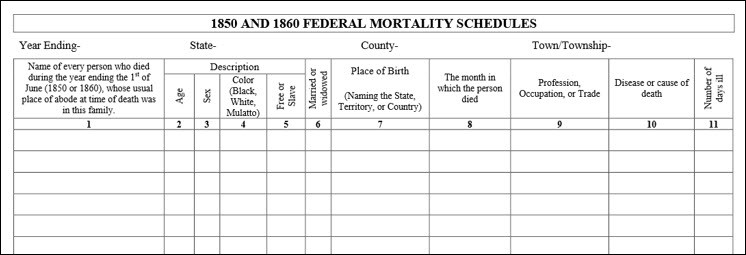
There are several recent posts in the FamilySearch Blog about African American genealogy (family history). I am listing 5 of them here with a short introduction. To read the full post on FamilySearch Blog, click the link in the title of each section.
1) Famous African Americans in FamilySearch Records
FamilySearch’s African American records are filled with useful genealogical information. For example, FamilySearch has records supporting the family history of famous African Americans such as Frederick Douglass, George Washington Carver, and Harriett Tubman—and the records are readily accessible for no charge!

2) Three African American Stories

Much of what we know about early African Americans comes from records. Such records are very valuable for tracing African American roots. By searching them and using additional sources, you can learn intimate details of the lives of your ancestors. The following three famous African Americans have records that can be found on FamilySearch.org. Read on to learn more about these individuals—Harriet Tubman, Frederick Douglass, and George Washington Carver — or learn how to find their records, and how to use those techniques to find your family.
3) Finding African American Ancestors in the 1850 Mortality Schedules
Nelly Harby was seventy-five when she died in November of 1849 in Charleston, South Carolina. Her death was recorded by Assistant Marshall Morris Goldsmith. William Hardeys was fifty-five when he died in September in Troup County, Georgia. Both were born in Africa.

What do Nelly and William have in common? They were both African slaves whose deaths were recorded in the 1850 United States Mortality Schedules, indexed and available on Family Search.org. Twenty years before, former slaves were first recorded in the population schedules of the 1870 census. Those who died one year prior to the taking of the 1850 census were recorded by name. Many of these entries were recorded with just a first name. Some may have been record along with the owner’s name like Cuffy, age 50, Reuben age 12, and Lowell age 2. All were owned by William A Carson whose name also appears on the schedule. They are just a few of the 42,000 slave deaths recorded.
4) African Americans Share Stories of Finding Ancestors in Freedmen’s Bureau Records

The Freedmen’s Bureau helped transform the lives of African Americans following the Civil War. In addition to providing critical goods and services to emancipated slaves, the Freedmen’s Bureau documented the names of freed individuals in a systematic way for the first time.
Before the Freedmen’s Bureau, there were no formal record collections for births, deaths, and legal designations like marriage during the time of slavery. The Freedmen’s Bureau helped usher in a new era of recognition and dignity.
Today, Freedmen’s Bureau records are critical genealogy resources for African Americans tracing their roots.
We’ve asked African American genealogists to share stories of ancestors they have found with the help of Freedmen’s Bureau records. Read these tales from the early days of freedom that may have been lost to us if not for the Freedmen’s Bureau.
5) Discovering My Passion for Genealogy

by Kenyatta D. Berry, JD, Genealogy Roadshow (PBS)
How did you get started in genealogy? What is the most interesting thing you have discovered about your ancestors? These are the top two questions I receive from fans of Genealogy Roadshow. I got my start in genealogy while in law school. Unlike most professional genealogists who start by researching their own families then moving onto friends, I began this journey by researching the family of a former boyfriend whose ancestors were prominent members of the African-American communities in Atlanta, Fayetteville (NC), and Philadelphia. Spending long hours at the State Library of Michigan in Lansing, I roamed the stacks looking at biographies and reviewing various online databases. During this time, I developed an interest in genealogy and quickly discovered it was my passion!
